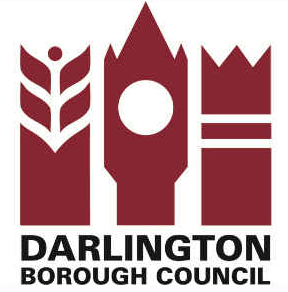What To Do When Someone Dies
What to do first, depends on how and where someone has passed away. See below for more information or feel free to contact us for guidance.

If The Death Occurs In Hospital or Hospice
If you are not present at the time of death, the Hospital/Nursing Home or Hospice will contact you to inform you that the death has occured. The doctor attending the deceased will then issue a Medical Certificate of Cause of Death, allowing you to register.
If The Death Occurs Elsewhere (at a private residence) Expected Death
- Contact the doctor who attended the deceased during their final illness (usually their registered G.P) or call the NHS helpline (dial 111) as soon as possible.
- If the doctor can certify the cause of death, he or she will give you a Medical Certificate of Cause of Death (this is free of charge and will be in a sealed envelope, addressed to the registrar).
- Contact a funeral director to arrange for them to bring your loved one into their care.
- You may wish to contact the deceased's minister of religion, if you have not already done so.
If The Death Occurs Elsewhere (at a private residence) Unexpected Death
- If you discover a body or the death is sudden or unexpected, you should contact the Police and Ambulance Services (Dial 999) immediately.
- If there is any reason to suspect that the death was not due to natural causes, do not touch or remove anything in the room. The Police will arrange for a funeral director to come and collect the deceased and take them into their care.
- If the doctor isn't sure about the cause of death, it may be referred to the Coroner. This is a medical examination of the body which can find out more about the cause of death and should not delay the funeral.
- You should also inform the deceased's registered G.P (if known).
Reporting A Death To A Coroner
In any of the following circumstances the doctor may report the death to the Coroner.
- An accident or injury
- An industrial disease
- During a surgical operation
- Before recovery from anaesthetic
- If the cause of death is unknown
- The death was sudden or unexpected
You will be advised if the death has to be reported to the Coroner, in which case the death cannot be registered nor the funeral take place, without the Coroner's authorisation. Where the death is reported to the Coroner, the Coroner's Office will contact the relatives.
A Coroner can order a post-mortem examination without getting the relative's permission. This will ascertain the cause of death. They may also wish to hold an investigation into the circumstances leading up to the death (this is called an inquest). When an inquest is called, the Coroner's Office will contact the relatives. This should not cause undue stress as it is a legal formality.
In such cases, the Death Certificate will be issued direct to you from the Coroner's Office and the relatives must then go to the Registrar to register the death. When an inquest is to be held, the death cannot be registered until the conclusion of the inquest, but a certificate will normally be issued at the opening of the inquest to allow the funeral to take place.
FAQ about registering a death
Where must the death be registered?
The death must be registered in the District Register Office for the area (town/city) in which it occurred.
When does the death need to be registered?
Normally within 5 days unless the Coroner is investigating the circumstances relating to the death. This 5 day period may be extended to 14 days in certain circumstances.
Who Must Register The Death?
People with legal responsibility to register include:
- A relative
- A person present at the death
- The occupier of the premises where the death occurred if he/she knew of it happening
- The person arranging the funeral. This does NOT mean the funeral director.
(See also the list on the Notice to Informants attached to the Doctor's medical certificate of cause of death).
What Documents Do I Need?
- The medical certificate of cause of death issued by the doctor treating the person who has died.
This is essential - the Registrar can do nothing without it.
(If the Coroner is involved, the Coroner's Office will advise you what to do). - The deceased person's birth certificate or passport (if available) can be helpful.
- The deceased person's medical card (don't worry if this is not available).
What Questions Will The Registrar Ask Me?
The Registrar will interview you in private and will need to know the following information:
- The date and place of death.
- The full name and surname, and maiden name if the person who has died was a married woman.
- The occupation and, if the deceased person was a married woman or widow, the full name of her husband.
- The usual address.
- If the person who died was married, the date of birth of the surviving spouse.
- Whether the person who has died was receiving a pension from public funds.
The Registrar will enter all these details in a computer and will then give you the opportunity to check that they are correct. The information will then be written into a register. This is the 'original' legal record and you should check it through very carefully before signing it, as any mistakes discovered later on may be difficult to correct.
What Documents Will I Receive?
- A 'Green Form' which enables you to arrange the funeral
(If the Coroner is involved different procedures may apply). - You will also be given a form for Social Security purposes.
- Certified copies of the entry ("death certificates") can also be obtained upon payment of the statutory fee.

